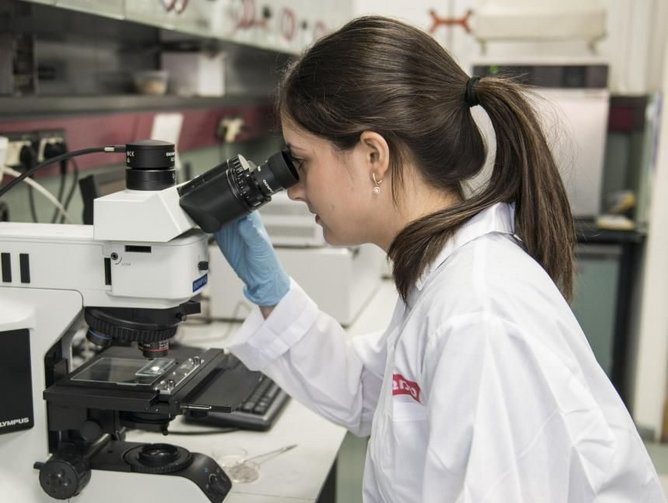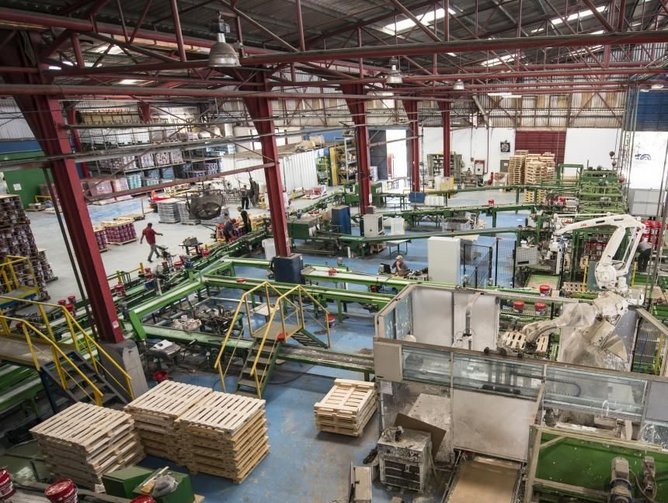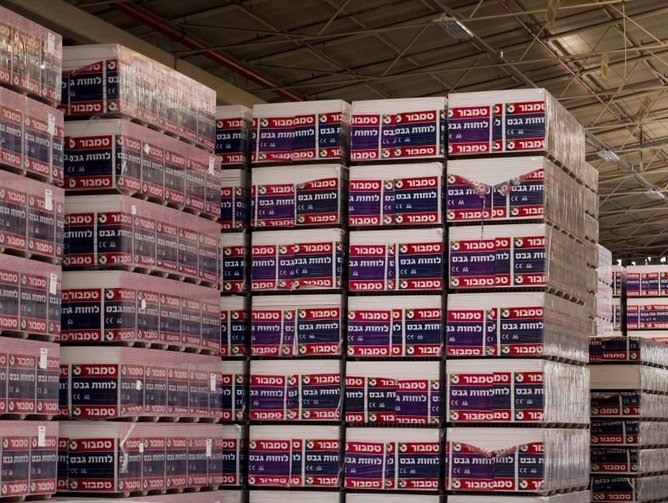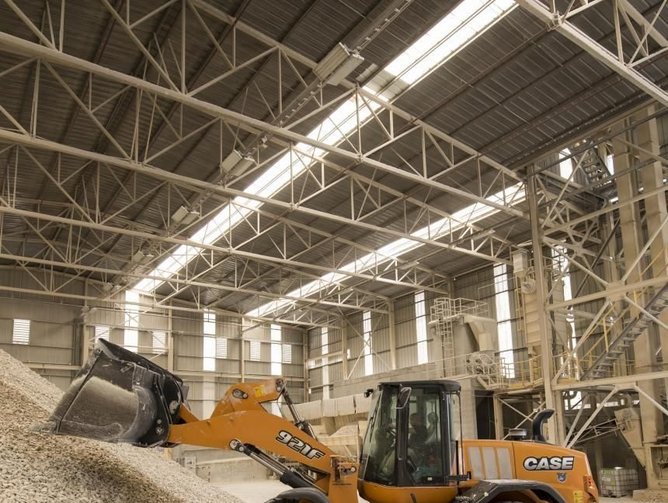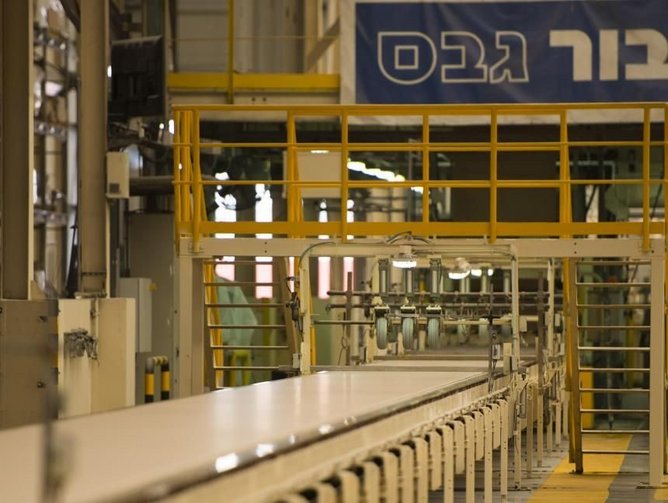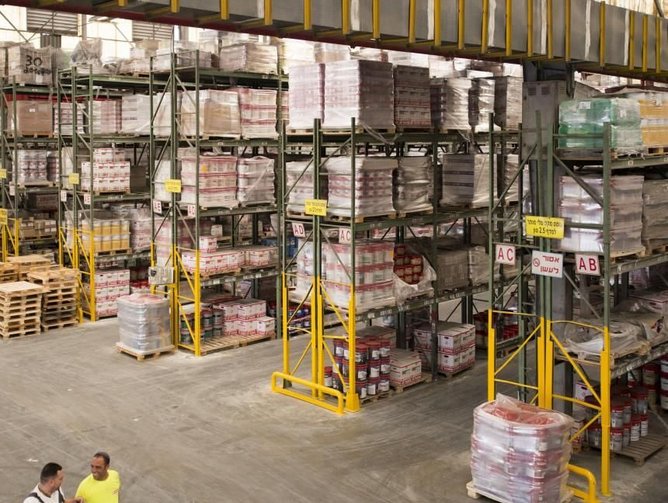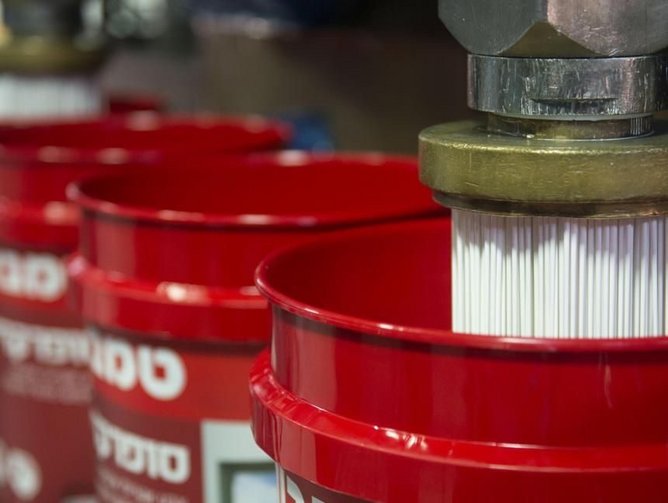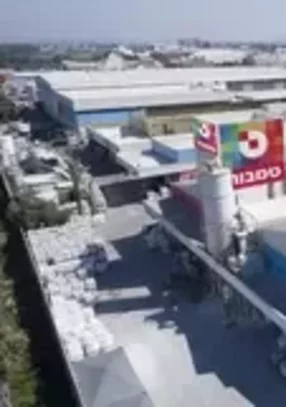Inside procurement at Tambour, Israel’s leading paints provider
The growth in competition and emergence of new technologies has led to the disruption of traditional industries on a global scale. It has become imperative for businesses to increasingly innovate and deliver exceptional customer experiences, whilst delivering further value within its products and services at every stage.
One such industry is the humble paints and coatings market. With new competition entering the market each year, the industry is witnessing accelerated growth. It has been predicted that figures are set to rise from $150.64bn in 2017, to $209.36bn by 2022.
Israeli based Tambour remains a leader in the industry. Commanding a global presence, it aims to have a significant influence in the markets which it serves, with a predominant focus on delivering exceptional services to its customers worldwide.
“Tambour is a veteran and very traditional brand in Israel. It is so well-known,that every single person that you will meet, if you say the word paint, they will immediately associate it with Tambour. Our greatest priority is maintaining the strength of our brand, which is terrifically strong,” explains Arkadi Rosenberg, Vice President of Procurement at Tambour.
“In a consumer survey, more than 97% of people replied that it's Tambour which comes to mind when they think about paint,” he says. “Our brand and products are preferred by most of the professionals in Israel, as well as consumers in the home.”
Competitive edge
Despite its strong reputation, the company has not rested on its laurels. Aware that the demand for paints is continually rising, and with new competitors regularly entering the market, Tambour has worked to guarantee increased value across its products and services to cater to ever-changing customer demand.
“We need to maintain our position and feed the customer need to be stronger, innovative, better, greener,” reflects Rosenberg.
“Most of our paints are water-based and not the solvent-based paint from the past. We are always trying to be green and substitute raw materials which have low Volatile Organic Compounds (VOC) or zero VOC, so are friendlier to the environment.
“To this end, we follow all regulations and instructions from Europe, as well as the local rules in Israel.”
A changing industry
Procurement is an area which is particularly reshaping businesses, boosting communication on an internal and external level, and leading the acceleration of future growth.
Tambour has recently undergone a procurement transformation of its own, which has seen the relocation of all its teams into one facility, providing a multitude of advantages.
“Procurement is a very powerful organisation within the business, where we have the power to influence, particularly from the supplier side. We also have a great power to influence the success of a company, because procurement holds up to 60% of the company budget. Manufacturing companies hold at least 50% consumption of raw materials and packaging,” says Rosenberg.
Through its transformation, Tambour’s procurement processes have been revamped. Its ERP systems are now able to accommodate the scale of Tambour’s operations, as well as the volume of production. New systems to forecast volumes of raw materials and packaging materials have also been implemented, as well as a new system to manage its warehouses.
“All of this will help us in procurement to be more efficient and give better service to the operation division,” explains Rosenberg. “We are also using a new technology system to help us manage our relationships with suppliers worldwide. This means housing all our data on the cloud. We keep all data from our suppliers and logistic aspects on there, on top of meeting summaries, performance scorecards etc.”
Although Tambour works with hundreds of suppliers worldwide, the company is keen to work with companies which can support, sell, produce or distribute chemicals across its operations, no matter its size. This will therefore enable the company to provide a platform for smaller producers, which will filter into the testing of its materials.
“We have a very open conversation with suppliers and meet with them up to three times a year to discuss commercial issues, quality issues, but also the development of future business and exploring the basket of products that we are working with,” notes Rosenberg.
“If you are strong and powerful, with a very clear vision, statements and rules that you are working with, and it's transparent to all of your partners, customers or suppliers, you gain a lot of respect.
“A month ago we launched a new system, which is helping us to manage our international transportation,” he continues. “It holds all the documentation needed, and differently from the past – we don't need to sign the documents manually. We have a certification for digital signatures, so can sign documents online and our customs agents can see it online without the need for the original document.”
Additionally, by investing in new technologies, Tambour has also steadily embraced automation across its operations.
“For us as a veteran in the paint business, we are still housing traditional manufacturing processes, so this can be a complex process in terms of competition,” reflects Rosenberg. “However, in the last 10 years, we have definitely been steadily moving towards automation in this regard.”
Providing transparency
Whilst the subject of communication has historically remained a thorny issue for the procurement sector, centralising all information and becoming one core department under one roof has strengthened Tambour’s relationships, both internally and externally.
“Everything is transparent. All required information about cargo arrival, missing materials, claims, etc., are all put into the new system,” comments Rosenberg.
“The planning department is now able to see our updates through the ERP system. We are also performing meetings weekly with the planning department, the operations department, and the sales department. We exchange information not just about the business, but personal updates which is important.”
All changes to the procurement team have been strengthened through the establishment of robust service level agreements (SLAs), highlighting what the team is responsible for, who to contact for certain enquiries and the times in which the team is available.
Furthermore, as part of the management team at Tambour, Rosenberg attends weekly meetings with the management team to provide key information to discuss areas such as price fluctuation, deficiencies in stock, new products and ideas, amongst other areas of interest.
“I also report at the beginning of the month surrounding the previous month’s KPIs – what we did, what we succeeded to reach. But, most importantly, I do not hide negative information,” notes Rosenberg.
“We believe that for Tambour, our team need to know exactly what's going on, especially in the supply chain. I share this information with the management team, and our procurement managers share this information with their colleagues.”
Back to basics
However, attracting talent is something which Rosenberg is particularly invested in on a personal level within Tambour’s procurement team. Interestingly, he expresses disinterest in employing those with extensive previous experience in procurement. Instead, he is keen to attract those with limited knowledge, or with experience from other fields, believing it to bring added value to Tambour’s mission to deliver exceptional services.
“Most of my time I'm trying to invest in my employees because I think this is the most important thing in what I'm doing,” explains Rosenberg.
“I prefer to hire people who have basic knowledge surrounding logistics. We are teaching, preparing and encouraging our employees to work in procurement with our methodology regarding how we treat suppliers, customers, colleagues and different divisions, which is very important.
“I’m trying to identify unique people, give experience to employees and prefer that they come with different skills and experiences,” he continues. “For example, I have employees from sales an employees who came from the finance industry, chemists, international relations and administration. In order to be successful, you need to be unique. Our team is comprised of nine unique persons, from different generations, genders and backgrounds.”
Although the procurement team remains small at Tambour, with 10 individuals in total, Rosenberg has built a team which is significantly strategic. Incorporating two purchasing managers, the team is divided into two sub-groups (or teams) to provide services to most of the departments at Tambour. Whilst one team looks at finished products, the second looks after all spend across the business.
“This can incorporate office products, catering, car leasing, telephones, procurements for marketing, sales, HR, IT, finance, laboratories etc. Within the core of the business, this can include raw materials, packaging materials, finished goods, produced finished goods, purchased finished goods etc.,” reflects Rosenberg.
“The success of Tambour depends on our performance. And my people feel it with every single millimeter of their bodies that they have the chance to influence this. Every good performance is directly influencing the bottom line of the company.”
Brand presence
Working very much as a family unit, the procurement team at Tambour consistently supports one another despite ongoing challenges in such a dynamic market.
“Such challenges are the euro and dollar rate exchange, as well as the market for materials, crude oil prices and energy prices, which are continually rising, to name a few,” comments Rosenberg.
Nonetheless, the strength of Tambour remains strong, where people connect the brand to quality and employee satisfaction.
“Despite a lot of previous owners, we remain an Israeli company, which makes us unique,” concludes Rosenberg.
“Even if we are selling globally and have facilities in other parts of the world, we will continue to retain this original Israeli asset now and in the future.”
